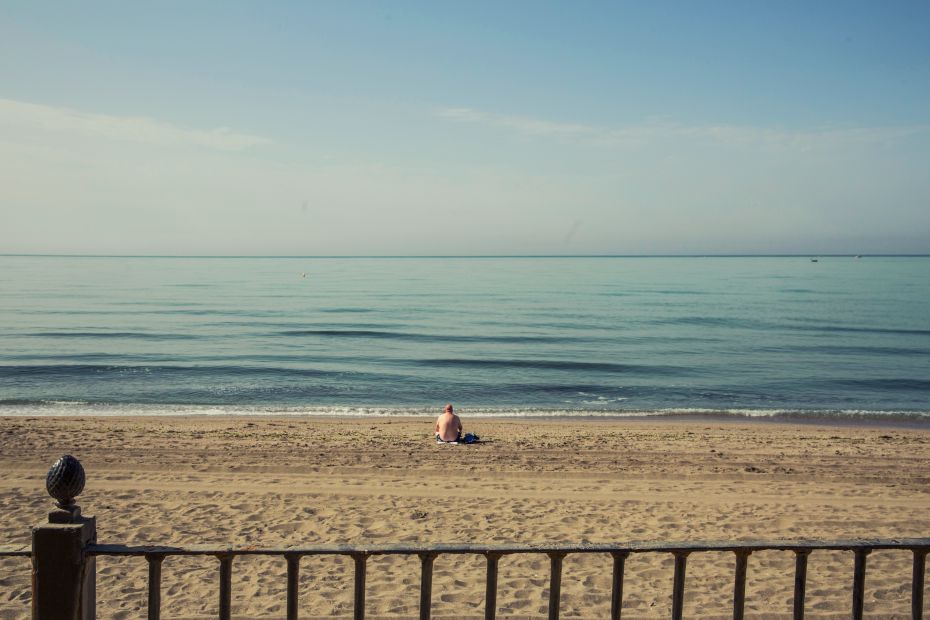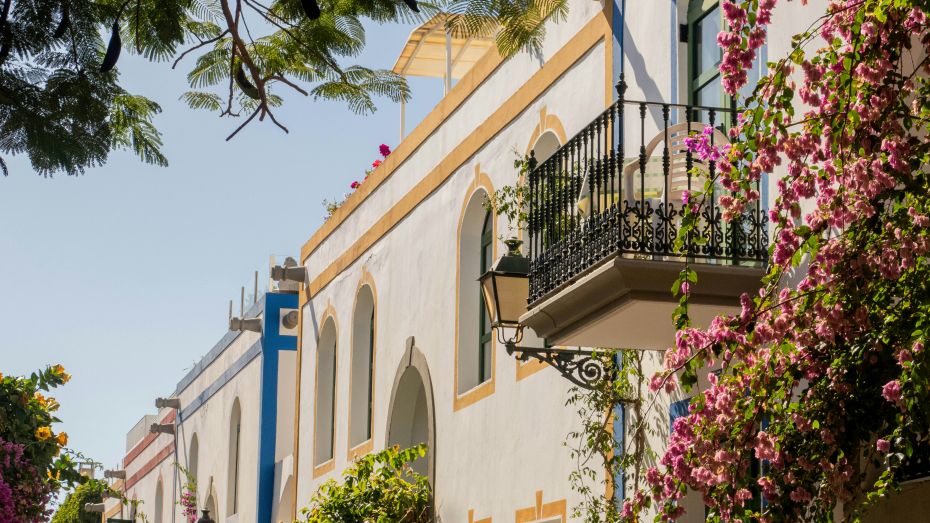The Mediterranean Lifestyle. Live it in Marbella!
By Julia Nilsson on - 13m. reading time
Why is the Mediterranean Lifestyle Special?
The main point is that we have here in Marbella something really special – beautiful, healthy, vibrant and desirable. It’s called the Mediterranean Diet … which is not really a diet. The word comes from the Greek 'diaita' meaning 'to live one's life' and the Latin 'diaeta' meaning 'a manner of living'. Yes, it’s all about lifestyle, a social practice based on the set of skills, knowledge and traditions ranging from the landscape to cuisine.
In 2024, with a record number of American and European votes, Marbella lands at the top of the Forbes list of "Best European Destinations 2024". Selected from 500+, the first time a Spanish destination takes head place in this ranking for the most demanding travellers. That's why a lot could be said on the subject of Americans, Scandinavians and other people from all over the world coming to the Costa del Sol to enjoy life. Would you like to live in the Best European destination? Discover our luxury properties in Marbella.

What Countries Follow Mediterranean Diet?
The Mediterranean Sea touches 21 countries. However, Mediterranean Diet is based primarily on the traditional cuisines and lifestyle of Italy, Greece, Spain and southern France, excluding the Eastern European, Middle Eastern and African countries of the region.
There are other opinions. American Nutrition Society names 7 countries practicing the Mediterranean Lifestyle: Italy, Spain, France, Greece, Malta, Cyprus and Portugal (which geographically is not a Mediterranean country). UNESCO names other 7 emblematic communities representing this cultural heritage: Cyprus, Croatia, Spain, Greece, Italy, Morocco and Portugal. While Science Mediterranean Diet Society considers the Mediterranean dietary pattern rooted in the coastal cuisine of Italy, Spain, Greece, France and northern Africa.
These Mediterranean geographic regions have an unusually large percentage of people who live past 100 years old. Scientific reports connect their lifestyle habits (including social interaction, physical activity, and mind-set) with a balanced and fulfilling life, healthy aging, overall well-being, lower cancer and all-cause mortality.
What is the Mediterranean Diet or the Mediterranean Lifestyle?
UNESCO gives an official definition of Mediterranean Diet.
In a nutshell, it’s an amazing way of life, full of simple pleasures and joys, celebration of delicious food, beautiful scenery and serenity, values of hospitality, family, neighbourliness, intercultural dialogue and creativity; it’s also the sea, sun and salty breeze.
It’s interesting, that Mediterranean Diet wasn’t invented like most modern diet programs, but discovered.

History of Mediterranean Diet Concept
In late 1950’s, Ancel Keys, a biologist of the University of Minnesota, discovered to his astonishment that the poor populations in Southern Italy and Crete had better health than the wealthy ones in New York. The concept of Mediterranean diet was first publicized in 1975, but failed to gain widespread recognition until the 1990s.
In 2010, the Mediterranean diet was awarded the recognition of UNESCO as an Intangible Heritage of Humanity. Celebrated worldwide, it has stood the test of time and continues to be ranked the best overall diet year after year. You will easily understand why.
Mediterranean Diet is all about Recipies & Habits
With the favourable climate, culinary traditions and amount of agricultural production developed around the Mediterranean, it is more difficult to eat badly than to eat good and healthy.
Which products are the stars of the Mediterranean diet? Considered the best and healthiest, the Mediterranean diet is based on the low amount of saturated fats and processed foods.The food is seasonal and local:
- Olive oil, a main source of fat, has been made for thousands of years, and not for nothing called ‘liquid gold’
- Wholegrain product
- Fresh fruit and vegetables
- Fish and seafood
- Legumes
- Cheeses
- Yogurt
- Nuts
- Lamb, poultry and rabbit
- Herbs, spices and sea salt
With all the variety on the Mediterranean Food Pyramid, it’s really hard to think that Spanish or Italian families follow a “diet” and count calories. There are no food restrictions. But if you look closely, you’ll see that it focuses on nutrient-dense produce, grains, fruits and vegetables providing vitamins, minerals and dietary fibre, lean proteins from nuts, seafood and dairy; and far less on fatty meats. And yes, thank goodness, we can have wine!
What drinks are recommended?
- Water. Consuming daily at least 6 - 8 glasses of water helps your body to regulate temperature, prevent infections, and keeps organs functioning properly. Hydration is critical to good health, improved mood, sleep and cognition.
- Red wine, daily used in moderation, has very many health benefits because of its antioxidant, anti-inflammatory and lipid-regulating effects. A glass of wine also helps relax and de-stress, an important component of good health.

No doubt, food is a cornerstone of Mediterranean lifestyle, but it is only one piece of the puzzle. Habits go hand in hand with it to boost our health and quality of life. The Mediterranean lifestyle is a holistic approach to living. By incorporating the Mediterranean habits into your daily routine, you can unlock the secret to a healthier, happier life.
Essential Elements in Mediterranean Way of Living
- Eating Mindfully. The Mediterranean way of eating is not just about what you eat, but also how you eat. This include using smaller plates reducing portion sizes, opting for healthier cooking methods (baking and grill vs. frying), savouring meals slowly, allowing for mindful eating and better digestion, and sharing with people you love.
- Simple life. Calm, relaxed, in no hurry (‘sin prisa, pero sin pausa’ - slowly but surely). A person spends a day maintaining a productive rhythm, but with time to contemplate and socialize, enjoying little pleasures, every day and for everyone.
- Social connection, spending time with friends and family. Everything is better when it is shared. Food is healthier when it’s consumed with gratitude and shared with others. Good relationships and socialization contribute greatly to well-being. And in the Mediterranean, we follow pretty good this advice, you just have to look at the bars and terraces, people talking in the street or walking in groups.
- Sleep pattern allows for adequate rest, including afternoon naps after a mid-day meal when the sun and the heat are pressing. Siesta is a concept, an opportunity for rest and rejuvenation, and ancient wisdom, more than just a moment to sleep. According to Harvard researchers’ new data, adequate rest is among the lifestyle factors that have the strongest influence on promoting longevity, improving cognitive function and reducing health risks.
- Balance. Mediterranean cultures value a balance, ensuring that work does not consume all the time and energy. Taking time for nurturing personal interests, helps reduce stress and enhance overall well-being.
- Outdoor life. Walking around, hiking in nearby mountains, enjoying golf, beaches, picnics, eating on terraces, happy children laughing in the parks, old people sitting “al fresco” on their doorstep... this is all Mediterranean lifestyle. With an ideal climate and 320+ days of sunshine annually, the Costa del Sol encourages an outdoor lifestyle. You can live outdoors practically the whole year. Another thing, just imagine having "fun in the sun" on a fabulous beach or a terrace of your truly exceptional property in Marbella - and skiing in Sierra Nevada on the same day! There are not so many places in the world where you can have snow adventure on winter mornings and afternoon BBQ on the beach!
- The Mediterranean Sea enriches life, improves well-being, and plays a major role in the Mediterranean lifestyle. Marbella has 24 beaches and 4 ports (11 with Blue Flag in 2024): bustling Puerto Deportivo de Marbella, traditional working fishing port La Bajadilla, charming Cabopino and famous Puerto Banus, which is officially one of the most sustainable ports in Spain and one of the most exclusive marinas in Europe. Do you want to live by the sea? Check out our frontline properties in Marbella selection.

- Physical activity. The beauty of Mediterranean lifestyle lies in the fact that nothing is forced on you, everything comes as natural. The Mediterraneans don’t exactly flock to the gym like Americans do. Despite this, they are very active people! Moving is a natural practice. They swim, dance, ride bicycles, climb lots of stairs, take kids and dogs for long walks, enjoy gardening and manual labour, walk to work, farmers’ markets, bakeries, neighbours’ and friends’ homes. These activities can burn more calories than sweating in the treadmill. Then comes a glorious Spanish tradition of a leisurely stroll along the sea or through the streets, meeting and greeting friends. Walking for the fun of walking is charmingly called el paseo. Catering to various interests, Marbella’s Paseo Maritimo is the perfect setting for everything: leisurely strolls, yoga, cycling, workout and jogging sessions.
- Embracing Nature. Mediterranean cultures have a deep connection to nature, which generates positive emotions, joy and creativity. Scientific research proves that people connected with nature are happier in life, have lower levels of poor mental health, stress, depression or anxiety. Moreover, here comes another great key aspect of Mediterranean Lifestyle - mindset. Marbella and its surroundings have a lot to offer in terms of nature. Discover our properties in La Zagaleta and our houses in Sotogrande.
- Focus on Happiness and Mental Wellbeing. The Mediterraneans are people with big personalities, who take life with a joyful attitude, love to tell funny stories, and fill their conversations with humour. They are engaged in joy-bringing activities, foster good relationships, and maintain a positive outlook on life. Are you familiar with the saying,“Laughter is the best medicine?” That has certainly proven true in the case of the Mediterraneans!

Environmental effects of Mediterranean Diet
Consuming a Mediterranean diet contributes to improving environmental and agricultural sustainability, partly due to lower use of dairy products, ruminant meat and ultra-processed foods. Mediterranean lifestyle emphasizes fresh, locally sourced, seasonal produce. Eating in this way not only supports local farmers and economies (emphasizing the importance of community) but ensures that you consume nutrient-rich foods at their peak and reduce your carbon footprint. Researchers of greenhouse gas emissions inform that a Mediterranean-like diet may reduce food production emissions 30% per capita by 2050.
The Mediterraneans also have pro-environmental behaviour (without too much thinking of it), buying seasonal food, recycling items, keeping high biodiversity, etc. Recipes like Ribollita and Panzanella, or Salmorejo and Gazpacho where day old bread is used (just to name a few), or Paella where leftovers are turned into a stunning flavour-packed dish, are examples of delicious ways to minimizing waste.
As usual, we’d like to present you some Personal Opinions.
- Doctor L. Diangar, owner of Diagnostics Company in Texas (bought a property in Estepona):
“Mediterranean folks and Americans have different life concepts. We come to the Med and learn that people live life to the fullest, yet in simplicity. An average Spanish has far fewer possessions than an average American, never buys in bulks (eating freshly matters) and doesn’t mind making multiple trips to the market to buy ingredients – on foot mostly, while we ‘live in cars’. Only 6% of Americans walk to work, while Spain has the highest percentage of walkers in Europe, with 37% people walking to work instead of driving.”
See the Lifestyle Flashcards from the locals, who grew up on the Mediterranean Diet.
Discover 3 basics of Mediterranean lifestyle for our team
Carmen, Social Media Specialist at Drumelia:
- Follow Mediterranean Diet. Extra virgin olive oil is a MUST at breakfast (try it simple, with bread and sea salt), and I use olive oil a lot when I cook. I eat Gazpacho and Porra Antequerana, Jamón ibérico, Sardine Espetos (from Malaga), Puchero (essential ingredients for this stew - meat, vegetables, chickpeas and broth - are healthy stuff), and like Sangría.

- Be with family. Share traditions and food. I love Family Sunday Lunches and magical Noche de San Juan with bonfires lit on beaches and burning of rag dolls.
- Outdoor activities are always in the context of daily family and community life: walks along the beach, coffee with friends on terraces in the sunshine, ferias and fiestas de pueblo (village festivals), going for Tapeo (tapas time).
For Ines, Listings Manager, the Mediterranean lifestyle means “enjoying the sun as a gift, good fresh food, a lot of outdoor activities, whether sports or time with loved ones. Nothing can beat an after-work walk by the beach while watching the sunset.”

Spain is the Healthiest Country in the World.
At least according to the Bloomberg Healthiest Country Index, which rates 169 nations and takes a wide range of different indicators into account. The UN studies, World Bank and World Health Organisation data confirm the same fact.
Yes, Mediterranean Diet can help prevent diabetes, reduce heart disease risk, promote weight loss, and help us live a longer, healthier life – it's backed by decades of research.
Have Mediterranean Lifestyle in Marbella!
As you can see, Mediterranean Diet is a special lifestyle. A way of living happily. Drumelia will gladly help you to make it yours. As we have helped since the start of the year more than 20 happy clients to start living Mediterranean lifestyle at the highest level.
According to official INE statistics, the population of Marbella in 2019 was 143,386. In 2023, Marbella had 156,295 inhabitants, which ranked it as the second-most populous city in the province. At least another 100,000 people are residing in Marbella but not officially registered. Some unregistered residents live here all the year round, some spend winters, whilst others come for summer, when Marbella’s population dramatically increases to over 500,000 with some sources estimating as high as 700,000 or a million.
According to new statistics, Marbella has become the 7th most inhabited municipality in Andalucía after its population grew by almost 7% in the past 5 years.

The local budgets for 2024 have a surplus of almost 11 million euros compared to 2023, with the Town Hall attributing this to the arrival of new residents. New homes are being built to house this wave of new inhabitants. Marbella is one of the leading municipalities on the Costa del Sol experiencing a housing boom, according to the Malaga College of Architects.
Contact us and we’ll make reality your dreams about living Mediterranean lifestyle! Dive into our amazing collection of properties in Marbella and its surroundings.
Cosmopolitan since birth, Julia is multilingual and has a doctorate degree in international auxiliary languages as means of intercultural communication.…








